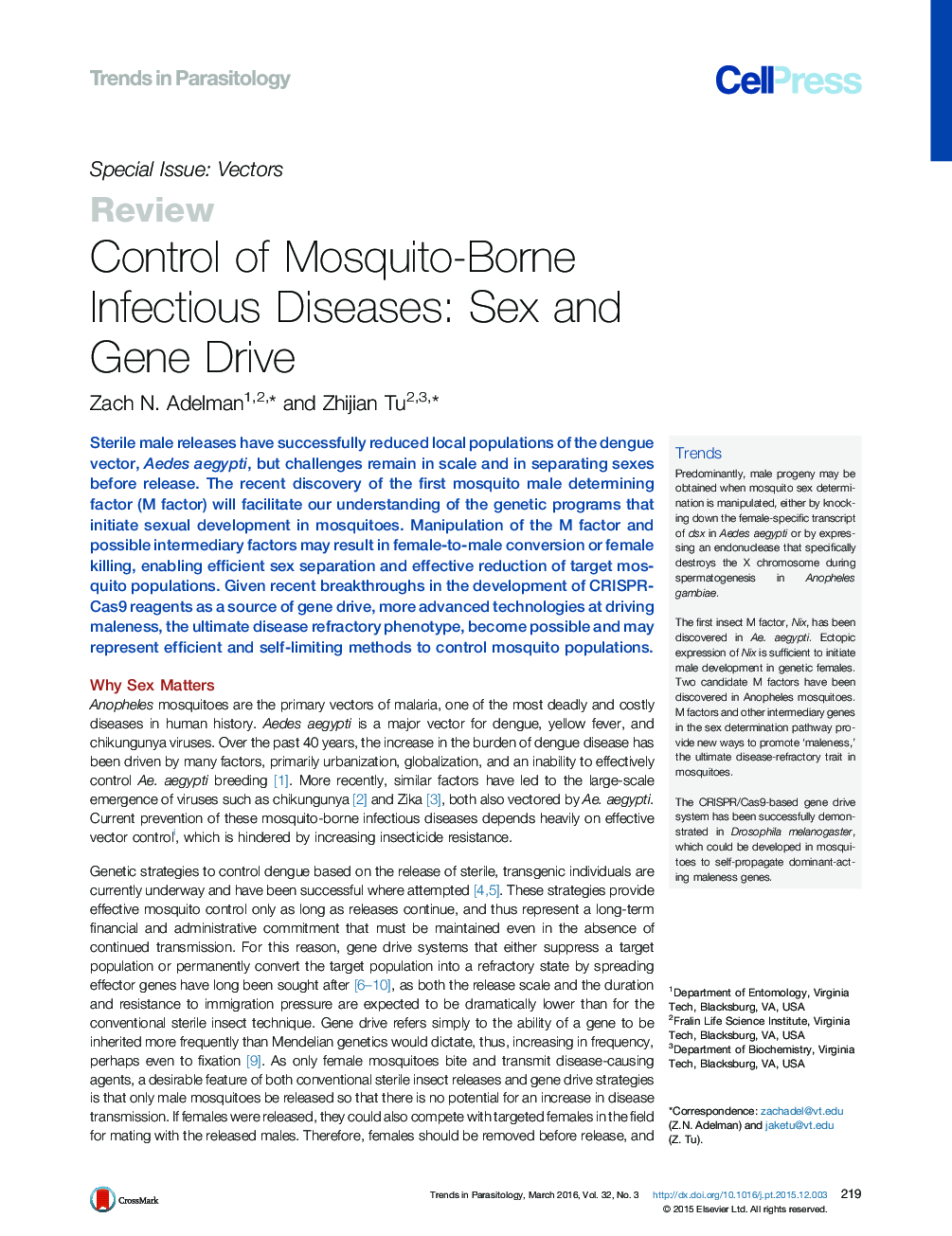| کد مقاله | کد نشریه | سال انتشار | مقاله انگلیسی | نسخه تمام متن |
|---|---|---|---|---|
| 3422979 | 1226967 | 2016 | 11 صفحه PDF | دانلود رایگان |
Sterile male releases have successfully reduced local populations of the dengue vector, Aedes aegypti, but challenges remain in scale and in separating sexes before release. The recent discovery of the first mosquito male determining factor (M factor) will facilitate our understanding of the genetic programs that initiate sexual development in mosquitoes. Manipulation of the M factor and possible intermediary factors may result in female-to-male conversion or female killing, enabling efficient sex separation and effective reduction of target mosquito populations. Given recent breakthroughs in the development of CRISPR-Cas9 reagents as a source of gene drive, more advanced technologies at driving maleness, the ultimate disease refractory phenotype, become possible and may represent efficient and self-limiting methods to control mosquito populations.
TrendsPredominantly, male progeny may be obtained when mosquito sex determination is manipulated, either by knocking down the female-specific transcript of dsx in Aedes aegypti or by expressing an endonuclease that specifically destroys the X chromosome during spermatogenesis in Anopheles gambiae.The first insect M factor, Nix, has been discovered in Ae. aegypti. Ectopic expression of Nix is sufficient to initiate male development in genetic females. Two candidate M factors have been discovered in Anopheles mosquitoes. M factors and other intermediary genes in the sex determination pathway provide new ways to promote ‘maleness,’ the ultimate disease-refractory trait in mosquitoes.The CRISPR/Cas9-based gene drive system has been successfully demonstrated in Drosophila melanogaster, which could be developed in mosquitoes to self-propagate dominant-acting maleness genes.
Journal: - Volume 32, Issue 3, March 2016, Pages 219–229
